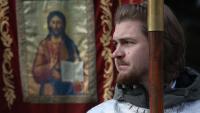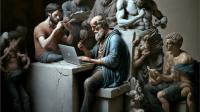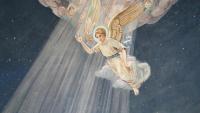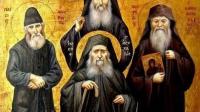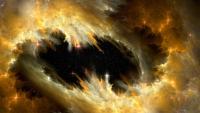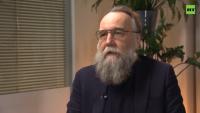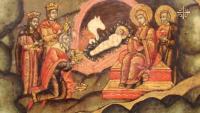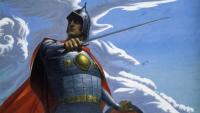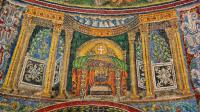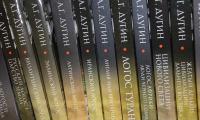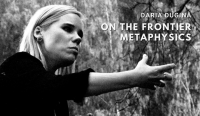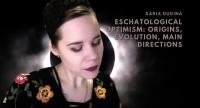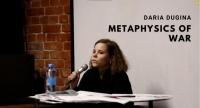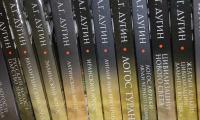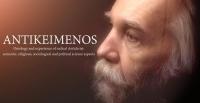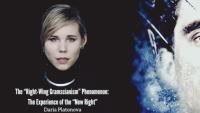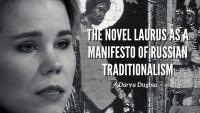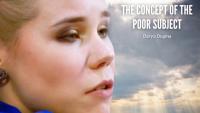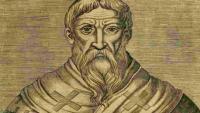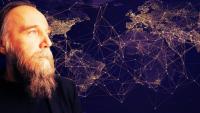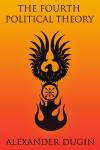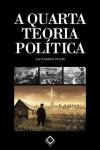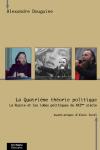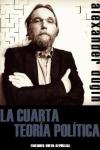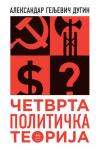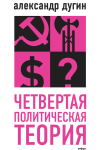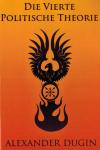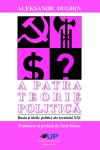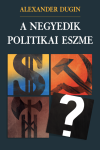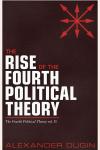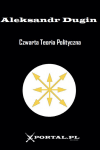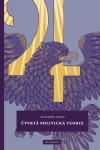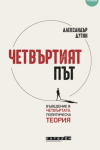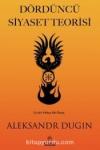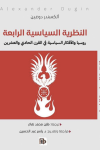Partisans of culture
I have noticed that certain registers of understanding are rapidly disappearing in society. It is as if the spectrum of waves on which people communicate - references, quotations, examples, the minimum obvious set of references, including rhetorical figures, references to seemingly obvious cascades of knowledge (in history, culture, art, science, philosophy, politics) - is constantly and irreversibly shrinking.
Dugin's guideline: The Dualism of the Spiritual World
In the second part of his anthropological study, Russian philosopher Aleksandr Dugin draws analogies between the material and spiritual worlds, between the worlds of humans and angels. The dualism discussed in the first part of the analysis is characteristic not only of humanity, but also of angels. How does it work in both worlds?
Christianity and the Life Element. A short ecclesiological essay
Today's Christians cannot help but have difficulties in their faith, not only because they live in an anti-Christian culture but also because faith is presented to them as something fragmented (e.g. a response to an existential challenge) or as a conceptual abstraction. Christianity lacks life. It is not completely lifeless, it is maladaptive, the life of Christianity is pale, which is why churches are half-empty, and even if they are full (on feast days), somehow they are not. Christian life is muted, muffled, muffled; it does not burn, but it ignites. It is a fact. There are exceptions, but they are extremely rare, and each case must be analysed carefully - whether we are talking about Christianity or whether the source of inspiration is somewhere else, or perhaps even somewhere else.
War and Chaos (Essays on the Metaphysics of War) - full version
The most thoughtful observers of the Ukrainian front note the peculiar nature of this war: the chaos factor has increased enormously. This applies to all sides of the Special Military Operation, both to the actions and strategies of the enemy and our command, as well as to the dramatically increased role of technology (all kinds of drones and UAVs), and the intensive online information support, where it is almost impossible to distinguish the fictitious from the real. This is a war of chaos. It is time to revisit this fundamental concept.
ALEXANDER DUGIN: UKRAINE IS ‘FIRST MULTIPOLAR’ CONFLICT
The West is clinging to the impossible dream of hegemony, Russian philosopher tells RT
The conflict in Ukraine is the world’s “first multipolar war,” in which Russia is fighting for the right of every civilization to choose its own path while the West wishes to maintain its totalitarian hegemonic globalism, Alexander Dugin told RT in an exclusive interview on Friday.
Philosopher Aleksandr Dugin discusses the Soviet Union’s legacy in an interview with RT
Philosopher Aleksandr Dugin discusses the Soviet Union’s legacy, multipolarity & other issues in an exclusive interview to RT.
The Order of Katechon
If we consider the problem of chaos from a philosophical and historical perspective, it becomes very clear that SMO is about Russia's struggle against the civilisation of chaos, which is, in fact, the new democracy, represented by the collective West and its rabid neighbourhood structure (Ukraine). The parameters of this civilisation, its historical and cultural profile, its ideology in general, are fairly easy to identify. We can recognise the movement towards chaos from the very first rebellion against orbitality, hierarchy, the ontological pyramidal volume that embodied the order of traditional civilisation.
Noomachy - Wars of the Minds: War as an application for the genuine philosophy
In the Greek Orthodox tradition, churches that are dedicated to Sophia the Divine Wisdom have their patronal festival on the day of Mid-Pentecost. It means that today is truly a day of philosophy, truly a day of the Divine Wisdom, which our ancestors, our founding fathers handed down to us. As you know, in the Divine Liturgy, there is a priestly exclamation: "Wisdom! Arise!" Sometimes our theologians and philosophers try to contrast divine wisdom with human wisdom. But in the original Greek text of the liturgy, the word 'Sophia' is used. Sophia refers to both meanings of wisdom: divine wisdom and human wisdom. These two meanings do not totally coincide, but, at the same time, they are not in opposition.
Metaphysics of War
Today I would like to share my views on the metaphysics of war and the philosophical comprehension of what is happening. Without such comprehension, we will not be able to grasp the full depth of the current confrontation. It goes without saying that I am carefully watching the information space, commenting on it live. However, today I would like to have a look at the current events from a philosophical perspective.
ALEXANDER DUGIN'S SPEECH AT THE FIRST SIBERIAN FORUM OF THE WORLD RUSSIAN PEOPLE'S COUNCIL: "WHAT IS TRADITION"?
Alexander Dugin: What is tradition?
Law 809, which has been talked about a lot today, is a turning point. We are generally living in a new era. This new epoch in Russia began on February 24 after the start of a special military operation, which entailed enormous transformations in the positioning of our country in the global context. The law "On Approval of the Principles of State Policy for the Preservation and Strengthening of Traditional Russian Spiritual and Moral Values" is a point of principle, the announcement of a new ideology of Russia.
Noomachy - Wars of the Minds: War as an application for the genuine philosophy
In the Greek Orthodox tradition, churches that are dedicated to Sophia the Divine Wisdom have their patronal festival on the day of Mid-Pentecost. It means that today is truly a day of philosophy, truly a day of the Divine Wisdom, which our ancestors, our founding fathers handed down to us. As you know, in the Divine Liturgy, there is a priestly exclamation: "Wisdom! Arise!" Sometimes our theologians and philosophers try to contrast divine wisdom with human wisdom. But in the original Greek text of the liturgy, the word 'Sophia' is used. Sophia refers to both meanings of wisdom: divine wisdom and human wisdom. These two meanings do not totally coincide, but, at the same time, they are not in opposition.
The “Right-Wing Gramscianism” Phenomenon: The Experience of the “New Right”
The “New Right” is an ensemble of intellectual movements that appeared in 1968 as a reaction to ideological crisis and the strengthening of liberal hegemony in Europe. By 1968, the classical “rightwing” movements were riddled with liberal ideological motives, such as the adoption of capitalism, pro-American sentiments, and statism.
The concept of the poor subject
A characteristic feature of Russian philosophy, according to some historians of Russian philosophy, is the ontologism of thought. The position of ontologism in philosophy, unlike the opposite position of gnoseologism, implies the primary consideration not of the process of thinking, but of the object of understanding.
The apophatic tradition: the theology of Dionysius the Areopagite
The work of the famous Christian theologian and mystic, whose writings have entered the Christian tradition under the name of Dionysius the Areopagite, is a unique phenomenon in the history of philosophical and religious thought. He has had an enormous influence on all Christian philosophy, eastern and western, and consequently on New Age philosophical thought in one way or another since the Middle Ages, where the Areopagitans played such an important role.

